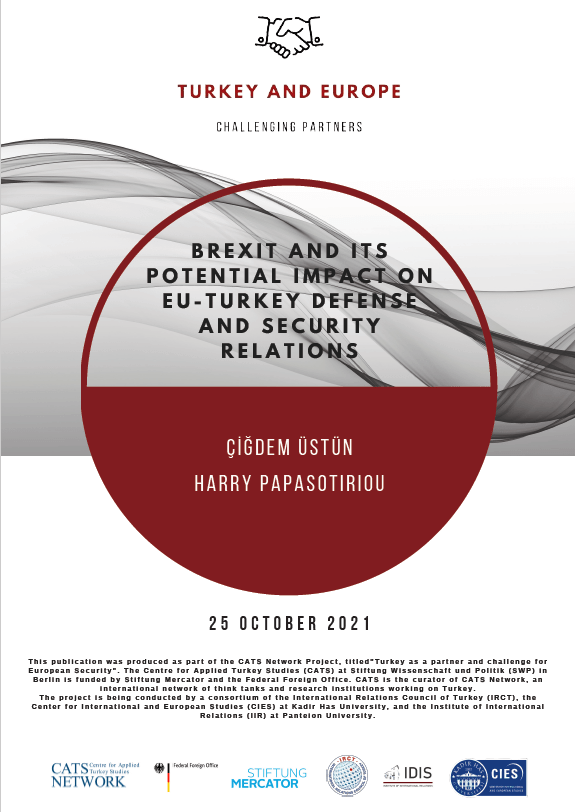
Turkey has been a partner of European countries for decades in Western security structures, thanks to its geopolitical position, military capabilities, and membership of NATO. Nevertheless, there were at times tense periods between Turkey and some of the European countries due to clashes of interests. More recently, rising tensions in the Aegean Sea and the Eastern Mediterranean over the continental shelf and exclusive economic zones have challenged the development of a positive agenda for cooperation. Turkey’s military capabilities and potential to act as a gatekeeper in connection with migratory waves toward Europe from the Middle East and the east in general are some of the more prominent assets in the current EU-Turkey cooperation efforts. After the UK’s exit from the Union, Turkey’s military capabilities are once again perceived as beneficial to strengthen the EU’s security and defense policies. These characteristics of Turkey will no doubt continue to shape the relations between Turkey and Europe in the security and defense realms in the coming years.

Çiğdem Üstün, Assoc. Dr., Nisantasi University
Çiğdem Üstün, graduated from Political Science and Public Administration Department at Bilkent University with honors and completed her MA Degree at European Studies and International Relations Department in University of East Anglia, UK with distinction. She holds a PhD in European Studies from the University of Limerick, Ireland on Comparison of EU and Turkish Security Cultures. Her PhD thesis was published in 2010 by I.B. Tauris. She got her associate professorship in 2014 on EU Studies. Her research interests are transatlantic relations, European integration, security and foreign policies, enlargement, EU-Turkey relations and neighborhood policies. She joined the EDAM team as Director and she is working as a faculty member in the Economic, Administrative and Social Sciences, Department of International Relations at Nişantaşı University, İstanbul. She is currently conducting a research on perspectives of civil society organizations in Greece and Turkey regarding a differentiated integration model in Turkey-EU relations as a visiting research fellow at the Department of Political Science and International Studies (PSIR) of the University of the Peloponnese, Greece. She has been an associate editor of Journal of International Relations (Uluslararası İlişkiler) since 2019. She has numerous articles, books and book chapters and opinion eds published in her areas of expertise.

Harry Papasotiriou, Prof. Dr., Panteion University & Institute of International Relations, Athens
Harry Papasotiriou is professor of international relations and strategic studies in the Department of International, European and Area Studies at Panteion University and Director of the Institute of International Relations, Athens, Greece. He studied Philosophy, Politics and Economics at Oxford and got an MA and a Ph.D. (1992) from Stanford’s Political Science Department. He is co-author of America Since 1945: The American Moment (Palgrave Macmillan, 2005, second edition 2010) and has published books and articles on the Balkans since the end of the Cold War, the War of Greek Independence, Byzantine grand strategy, American politics and foreign policy, the role of the diaspora in Greek foreign policy and international politics in the twenty-first century.


